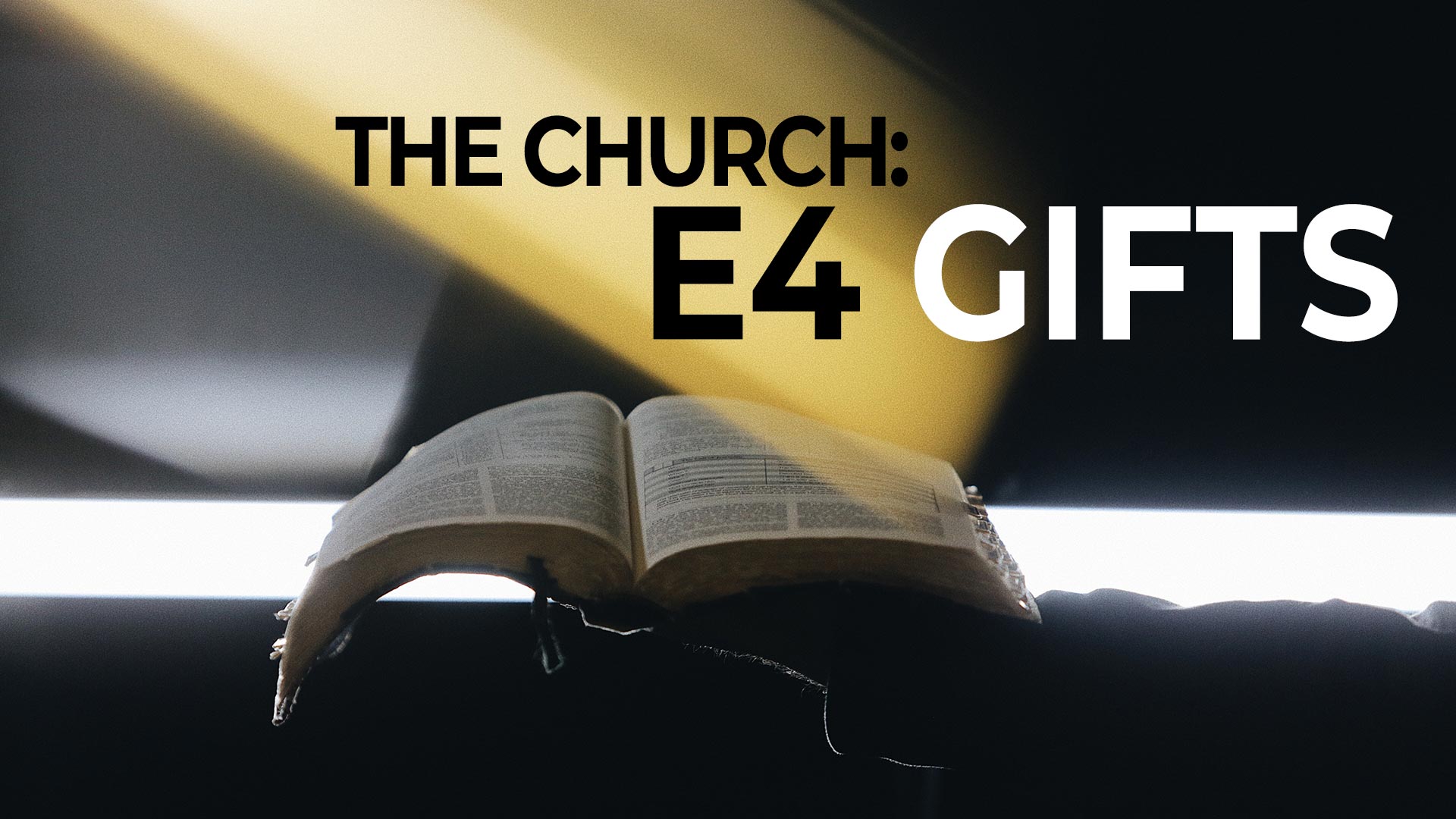The Church: E4 Gifts

Paul speaks in Ephesians about the ministry gifts that Jesus left with His disciples when His ascended into Heaven.
Ephesians four describes apostles, prophets, evangelists, pastors, and teachers that are given to equip the church. Their primary function is to train, enable, motivate, discipline, and instruct the church to carry out the work of ministry of building up the Body of Christ, Ephesians 4:11–12. Paul says that these gifts have been given until the Church reaches the stature God intends for Her. Since we do not believe that the Church has yet become the perfect Bride, we should fully expect to see all of these gifts still operating today. Every Elder in a local church should be either an apostle, prophet, evangelist, pastor, or teacher. However, every person who is called to one of the five-fold offices is not necessarily an elder.
The following titles are not given for the purpose of recognizing a specific leader and his call, but to help explain the need for leadership and to show the variety of ways in which leadership will function. In fact, these ministries will overlap one another at various times. Although each leader may “do the work of” one or more of these gifts, they will not operate primarily in more than one, Ephesians 1:1; Galatians 1:1; Second Timothy 1:11; First Peter 1:1; 5:1.
- Apostle — “One who is sent,” Acts 14:23; Ephesians 4:11; First Corinthians 12:28. Apostolic ministry typically functions in these areas: Appointing and training leaders; establishing churches; strengthening existing churches; serving and strengthening leaders; formulating doctrine; serving churches. Although the apostle will function in positional authority, like a father, during the process of establishing churches and leadership, he will eventually move to a place of influential authority, more like a grandfather, leaving the church in the hands of local leadership.
- Prophet — “bubble up and gush forth,” Ephesians 2:20; Acts 15:32; Ephesians 3:3-5; Acts 11:28; 13:1–2. A prophet is God’s mouthpiece, speaking on His behalf, and will generally provide the following functions: Works alongside apostles in foundational ministry; receives revelation to direct, warn, inform, edify, exhort, and console God’s people; sometimes receive revelation to foretell future events. Others in the church can prophesy without holding the ascension gift office of “prophet.”
- Evangelist — “one who proclaims good news,” Acts 6:5; 8:26-40; 21:8. Phillip’s ministry is the best scriptural example of this gift at work. A servant who was able to preach the message of salvation to the masses, or to one lone man on a desert road, Phillip was continually bringing the unsaved in from the fringes of the Body of Christ and making them a part of the Church. He was not a one-person show, though. He called Peter and John to come and help him in Samaria, for instance. A true evangelist is one who not only carries the gift himself but is also able to impart and teach other members of the Body how to function in evangelism. That is essential equipment for an evangelist because we are all called to proclaim the good news.
- Pastor — “one who feeds and cares for the sheep,” Ezekiel 34:12-16. The traditional understanding of a “pastor” is that he is the guy who runs the church — at least as much as the deacon board allows. In our human-made leadership concepts, we have assigned the word “pastor” to men whose true gift may be as teachers, prophets, apostles, or evangelists. We have then expected that one-man pastor to become a five-fold gift to the local church!
The concept of team leadership is more in line with scriptural examples. The pastor or pastors of a local church are men who have a heart for the sheep the way an evangelist has a heart for the lost. Following the example of Jesus,John 10:11-14, the pastor lays his life down for the sheep and knows them by name. Pastoring is a relationship, not a job description. A true pastor will know his sheep’s names and their specific needs, besetting sins, and current growth stage in God. He will laugh with them, cry with them, and play with their children. He will rejoice over their victories and weep over them in prayer. Because the call to pastor involves such intimate friendship with the people under his care, no man can genuinely pastor a mega-church alone. Large congregations require a team of pastors who function under the leadership of the head pastor. - Teacher — “one who is skilled and gifted in the exposition of the Word of God.” Although all those who function in a five-fold gift should teach, and many members of the Body will teach at specific times, the teacher carries a specific anointing to teach. When he steps forward in prayer and calls for Jesus as Teacher to descend upon a meeting, an anointing for understanding enters the room in an almost tangible way, John 20:16. The teacher then puts forth the Word of God in a manner that people can easily grasp and apply to their own lives. He follows the example of Jesus, who is the greatest Teacher who ever lived.
Jesus Christ is also the chief apostle, prophet, evangelist, and pastor — and He is a servant of all. He has appointed people to govern His Church, and He has given them gifts to enable them to fulfill their call. The Church, in turn, recognizes these callings in specific men and women and responds accordingly. Besides those mentioned here, the Church also needs gifted psalmists, musicians, helps, administrations, hospitality, givers, those who show mercy, and much more. People may function in the grace of a gift without holding the office or authority. The Church is not to be governed by the systems that earthly organizations are governed by. The Church belongs to God, and it is His government, His gifts, and His callings which we acknowledge.
